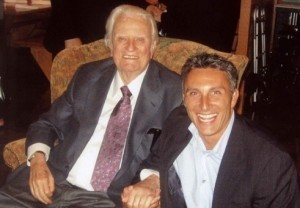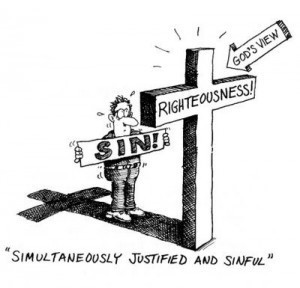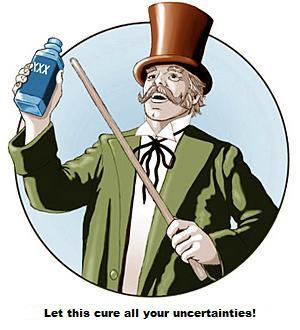Tullian Tchividjian's Blog, page 21
November 19, 2012
Are Christians Totally Depraved?
 Believe it or not, this is an important question. It’s not simply a theological question. It’s a theological question that has profound practical implications. Our answer will inevitably reveal our understanding of the gospel and reflect our understanding of sin and grace.
Believe it or not, this is an important question. It’s not simply a theological question. It’s a theological question that has profound practical implications. Our answer will inevitably reveal our understanding of the gospel and reflect our understanding of sin and grace.
First things first: what total depravity isn’t.
Total depravity does not mean “utter depravity.” Utter depravity means that someone is as bad as he/she can possibly be. Thankfully, God’s restraining grace keeps even the worst of us from being utterly depraved. The worst people who have ever lived could’ve been worse. So, don’t read “utter depravity” into “total depravity.”
Well, if total depravity isn’t utter depravity, then what is it? As understood and articulated by theologians for centuries, the idea of “total depravity” means more than one thing.
On the one hand, total depravity affirms that we are all born “dead in our trespasses and sins” (Ephesians 2:1-3; Colossians 2:13), with no spiritual capacity to incline ourselves Godward. We do not come into this world spiritually neutral; we come into this world spiritually dead. Therefore, we need much more than to reach out from our spiritual hospital bed and take medicine that God offers. We need to be raised from death to life. In this sense, total depravity means we are “totally unable” to go to God. We will not because we cannot, and we cannot because we’re dead.
None is righteous, no, not one; no one understands; no one seeks for God. All have turned aside; together they have become worthless; no one does good, not even one. (Romans 3:10-12)
For the mind that is set on the flesh is hostile to God, for it does not submit to God’s law; indeed, it cannot. Those who are in the flesh cannot please God. (Romans 8:7-8)
Salvation only happens when God comes to us.
When the Resurrection and the Life says “Lazarus, come forth”, the rest of the story does not depend on Lazarus. He can drag his feet all the way-admittedly, a hell of a thing to do-but he rises, no matter what. He just plain does… Jesus came to raise the dead. The only qualification for the gift of the Gospel is to be dead. You don’t have to be smart. You don’t have to be good. You don’t have to be wise. You don’t have to be wonderful. You just have to be dead. That’s it. (Robert Capon)
So, in the sense above, Christians are obviously not totally depraved. We who were dead have been made alive.
But God, being rich in mercy, because of the great love with which he loved us, even when we were dead in our trespasses, made us alive together with Christ—by grace you have been saved—and raised us up with him and seated us with him in the heavenly places in Christ Jesus…(Ephesians 2:4-6)
But once God regenerates us by his Spirit, draws us to himself, unites us to Christ, raises us from the dead, and grants us status as adopted sons and daughters, is there any sense in which we can speak of Christian’s being totally depraved?
Yes.
Theologians speak of total depravity, not only in terms of “total inability” to come to God on our own because we’re spiritually dead, but also in terms of sin’s effect: sin corrupts us in the “totality” of our being. Our minds are affected by sin. Our hearts are affected by sin. Our wills are affected by sin. Our bodies are affected by sin. This is at the heart of Paul’s internal struggle that he articulates in Romans 7:
For I do not do what I want, but I do the very thing I hate.
The painful struggle that Paul gives voice to arises from his condition as simul justus et peccator (simultaneously justified and sinful). He has been raised from the dead and is now alive to Christ, but remaining sin continues to plague him at every level and in every way.
Paul’s testimony demonstrates that even after God saves us, there is no part of us that becomes sin free–we remain sinful and imperfect in all of our capacities, in the “totality” of our being. Even after God saves us, our thoughts, words, motives, deeds, and affections need the constant cleansing of Christ’s blood and the forgiveness that comes our way for free. This is what J.C. Ryle was getting at when he wrote, “Even the best things we do have something in them to be pardoned.”
While it is gloriously true for the Christian that there is nowhere Christ has not arrived by his Spirit, it is equally true that there is no part of any Christian in this life that is free of sin. Because of the totality of sins effect, therefore, we never outgrow our need for Christ’s finished work on our behalf–we never graduate beyond our desperate need for Christ’s righteousness and his strong and perfect blood-soaked plea “before the throne of God above.”
The reason this is so important is because we will always be suspicious of grace (“yes grace, but…”) until we realize our desperate need for it. Our dire need for God’s grace doesn’t get smaller after God saves us. In one sense, it actually gets bigger. Christian growth, says the Apostle Peter, is always “growth into grace”, not away from it. Many Christians think that becoming sanctified means that we become stronger and stronger, more and more competent. And although we would never say it this way, we Christian’s sometimes give the impression that sanctification is growth beyond our need for Jesus and his finished work for us: we needed Jesus a lot for justification; we need him less for sanctification.
The truth is, however, that Christian growth and progress involves coming to the realization of just how weak and incompetent we continue to be and how strong and competent Jesus continues to be for us. Spiritual maturity is not marked by our growing, independent fitness. Rather, it’s marked by our growing dependence on Christ’s fitness for us. Because we are daily sinners, we need God’s daily distributions of free grace that come our way as a result of Christ’s finished work. Christian growth involves believing and embracing the fact that, even as a Christian, you’re worse than you think you are but that God’s grace toward you in Christ is much bigger than you could ever imagine.
Because of total depravity, you and I were desperate for God’s grace before we were saved. Because of total depravity, you and I remain desperate for God’s grace even after we’re saved.
Thankfully, though our sin reaches far, God’s grace reaches infinitely farther.
November 12, 2012
All Of Grace
 “The fatuous idea that a person can be holy by himself denies God the pleasure of saving sinners. God must therefore first take the sledge-hammer of the Law in His fists and smash the beast of self-righteousness and its brood of self-confidence, self wisdom, and self-help. When the conscience has been thoroughly frightened by the Law it welcomes the Gospel of grace with its message of a Savior Who came–not to break the bruised reed nor to quench the smoking flax–but to preach glad tidings to the poor, to heal the broken-hearted, and to grant forgiveness of sins to all the captives.”
“The fatuous idea that a person can be holy by himself denies God the pleasure of saving sinners. God must therefore first take the sledge-hammer of the Law in His fists and smash the beast of self-righteousness and its brood of self-confidence, self wisdom, and self-help. When the conscience has been thoroughly frightened by the Law it welcomes the Gospel of grace with its message of a Savior Who came–not to break the bruised reed nor to quench the smoking flax–but to preach glad tidings to the poor, to heal the broken-hearted, and to grant forgiveness of sins to all the captives.”
Martin Luther
November 7, 2012
Happy Birthday Daddy Bill
 It was May 2, 1996 and I was sitting in the U.S. Capitol rotunda with my family. We were eagerly anticipating the ceremony that was getting ready to begin. I had been to Washington DC once before, back in 1985, when I was just 13 years old. This trip was different though. We were there because my grandparents were being honored on this day with the Congressional Gold Medal—the highest honor the Congress of the United States can bestow on a citizen. In fact, Senator Bob Dole, during a speech at the ceremony, said, “When the idea of awarding the Congressional Gold Medal to Billy and Ruth Graham was first raised, it received something rare in this building—unanimous approval.” Everybody laughed. At the time, it was only the 114th medal awarded, with George Washington being the first recipient.
It was May 2, 1996 and I was sitting in the U.S. Capitol rotunda with my family. We were eagerly anticipating the ceremony that was getting ready to begin. I had been to Washington DC once before, back in 1985, when I was just 13 years old. This trip was different though. We were there because my grandparents were being honored on this day with the Congressional Gold Medal—the highest honor the Congress of the United States can bestow on a citizen. In fact, Senator Bob Dole, during a speech at the ceremony, said, “When the idea of awarding the Congressional Gold Medal to Billy and Ruth Graham was first raised, it received something rare in this building—unanimous approval.” Everybody laughed. At the time, it was only the 114th medal awarded, with George Washington being the first recipient.
There were hundreds who came that day to honor my grandparents, ranging from then Vice President Al Gore to Kathy Lee Gifford. Newt Gingrich, Senator Dole, and Vice President Gore publicly honored my grandparents by sharing how much my grandparents meant to each of them personally.
After the medal was presented, my granddad got up to speak. Before he could say a word, the crowd stood and applauded for a solid three minutes. Tears began streaming down my face. I was so proud of him and so thankful that God had given me such a tremendous heritage—one I had neither asked for nor deserved. Here was a man who was being publicly honored for preaching the gospel of Jesus Christ to more people than anyone in history; a man who was being recognized for his love for God and love for others—and I had the privilege of calling him “Daddy Bill.” As we all stood and clapped, I prayed: “Lord, no matter what it is that you call me to do, I want to do it with the God-centered focus, passion, and humility that have characterized the life and ministry of my grandfather.”
It was no surprise that he presented the Gospel that day. He spoke boldly of sin, the cross, and the great need for repentance. He spoke about the brevity of life and the fleeting pleasures of this world. He looked into the eyes of the many high ranking political leaders who were there that day and challenged them to contemplate death and the life after. He was so bold, so unashamed of the Gospel—yet so winsome. To this day, I’m not sure I have ever heard the truth spoken in love more effectively. I had heard him preach a thousand times, but this time was particularly moving. I’ll never forget that day.
Today “Daddy Bill” turns 94.
 Born November 7, 1918 on a dairy farm outside of Charlotte, North Carolina, “Daddy Bill” (who lived the majority of his life on the world stage) rarely leaves home now. His mind is still sharp but his body is weak and frail. He says that getting old has been hard. His wife of over 60 years (my grandmother “TaiTai”) died 5 1/2 years ago. Most of his friends have died. He still sees a world in dire need but is now relegated to the sidelines–cheering his brothers and sisters on, but wishing he could still be in the game. He told me recently that he thinks he’ll live another year or two. I hope it’s longer.
Born November 7, 1918 on a dairy farm outside of Charlotte, North Carolina, “Daddy Bill” (who lived the majority of his life on the world stage) rarely leaves home now. His mind is still sharp but his body is weak and frail. He says that getting old has been hard. His wife of over 60 years (my grandmother “TaiTai”) died 5 1/2 years ago. Most of his friends have died. He still sees a world in dire need but is now relegated to the sidelines–cheering his brothers and sisters on, but wishing he could still be in the game. He told me recently that he thinks he’ll live another year or two. I hope it’s longer.
Not long ago, I wrote a few things down that I’ve always admired about my granddad. Since it’s his birthday, I thought I’d share them with you.
1. His Humility: Daddy Bill has always been keenly aware that God is God and he is not. He’s always been conscious of his smallness and God’s bigness, his imperfection and God’s perfection. I was telling someone the other day that it wasn’t until I got older that I began to realize my grandfather was a pretty important person. This is mainly due to the fact that he never, ever, projected himself to be any more or less important than anyone else. I have never seen him think more highly of himself than he ought.
2. His love for the Gospel: Daddy Bill has always had a deep sense of his own sin which has led him to a deep love for his Savior. He’s always exemplified the sweet reality that you can never know Christ as a Great Savior until you first know yourself to be a great sinner. God’s amazing grace still amazes him—and that amazes me!
3. His Faithfulness: Although he had the opportunity to do many things (have his own TV show, become President of various colleges and seminaries, star in movies, and yes, even run for President of the United states) he never wavered concerning God’s call on his life to be an Evangelist. He knows he’s not a scholar or a theologian and he’s never tried to be. He’s always remained true to God’s calling on his life. And he has fulfilled that calling without ever being guilty of any sexual, financial, or other moral scandal.
4. I have never seen him show favoritism: I have been with Daddy Bill in numerous places at numerous times with numerous people and I have never, ever seen him show favoritism. He treats all people the same, whether they’re rich or poor, weak or powerful, socially significant or socially insignificant. Because of his belief that all people are made in God’s image, he has rightfully concluded that there are no little people.
5. His humanness: Daddy Bill is normal! He gets mad; he gets sad; he’s fun to be around. His favorite restaurant is Morrison’s Cafeteria. His favorite movie is Crocodile Dundee. His favorite drink is orange juice and he loves catfish. He’s just another man with all of the limitations and idiosyncrasies that the rest of us have—and I love him for it!
Daddy Bill, you have been one of my closest friends and most reliable counselors all my life. I want to be just like you when I grow up.
Happy Birthday! I love you.
November 5, 2012
Moralism Vs. Jesus-Centered Preaching
A number of years ago, Kim and I were having dinner with Tim and Kathy Keller and Kathy said, “Most preaching these days is M.O.T.S. preaching.” Kim said, “What’s M.O.T.S. preaching?” Tim answered, “Moral of the Story preaching.” To read and preach the Bible as if it were fundamentally about us and what we should do is to miss the point of the Bible entirely.
Tim explains the difference between a moralistic reading of the Bible and a Jesus-Centered reading of the Bible:
 We have said that you must preach the gospel every week-to edify and grow Christians and to convert non-Christians. But if that is the case, you cannot simply ‘instruct in Biblical principles.’ You have to ‘get to Jesus’ every week.
We have said that you must preach the gospel every week-to edify and grow Christians and to convert non-Christians. But if that is the case, you cannot simply ‘instruct in Biblical principles.’ You have to ‘get to Jesus’ every week.
For example, look at the story of David and Goliath. What is the meaning of that narrative for us? Without reference to Christ, the story may be (usually is!) preached as: “The bigger they come, the harder they’ll fall, if you just go into your battles with faith in the Lord. You may not be real big and powerful in yourself, but with God on your side, you can overcome giants.” But as soon as we ask: “how is David foreshadowing the work of his greater Son”? We begin to see the same features of the story in a different light. The story is telling us that the Israelite’s can not go up against Goliath. They can’t do it. They need a substitute. When David goes in on their behalf, he is not a full-grown man, but a vulnerable and weak figure, a mere boy. He goes virtually as a sacrificial lamb. But God uses his apparent weakness as the means to destroy the giant, and David becomes Israel’s champion-redeemer, so that his victory will be imputed to them. They get all the fruit of having fought the battle themselves.
This is a fundamentally different meaning than the one that arises from the non-Christocentric reading.
There is, in the end, only two ways to read the Bible: is it basically about me or basically about Jesus? In other words, is it basically about what I must do, or basically about what he has done? If I read David and Goliath as basically giving me an example, then the story is really about me. I must summons up the faith and courage to fight the giants in my life. But if I read David and Goliath as basically showing me salvation through Jesus, then the story is really about him. Until I see that Jesus fought the real giants (sin, law, death) for me, I will never have the courage to be able to fight ordinary giants in life (suffering, disappointment, failure, criticism, hardship). For example how can I ever fight the “giant” of failure, unless I have a deep security that God will not abandon me? If I see David as my example, the story will never help me fight the failure/giant. But if I see David/Jesus as my substitute, whose victory is imputed to me, then I can stand before the failure/giant. As another example, how can I ever fight the “giant” of persecution or criticism? Unless I can see him forgiving me on the cross, I won’t be able to forgive others. Unless I see him as forgiving me for falling asleep on him (Matt.27:45) I won’t be able to stay awake for him.
In the Old Testament we are continually told that our good works are not enough, that God has made a provision. This provision is pointed to at every place in the Old Testament. We see it in the clothes God makes Adam and Eve in Genesis, to the promises made to Abraham and the patriarchs, to the Tabernacle and the whole sacrificial system, to the innumerable references to a Messiah, a suffering servant, and so on.
Therefore, to say that the Bible is about Christ is to say that the main theme of the Bible is, “Salvation is of the Lord” (Jonah 2:9).
November 1, 2012
Simultaneously Righteous And A Sinner?
 My good friend Jono Linebaugh (New Testament Professor at Knox Theological Seminary and content manager for LIBERATE) wrote a thoughtful post on Martin Luther’s famous phrase Simul iustus et peccator–simultaneously justified and a sinner (you can read it here). One reader questioned whether “sinner” is an appropriate term to describe Christian identity. This is an important question. After all, Paul writes to sinful Christians and calls them “saints.” Once God saves us, aren’t we new creatures?
My good friend Jono Linebaugh (New Testament Professor at Knox Theological Seminary and content manager for LIBERATE) wrote a thoughtful post on Martin Luther’s famous phrase Simul iustus et peccator–simultaneously justified and a sinner (you can read it here). One reader questioned whether “sinner” is an appropriate term to describe Christian identity. This is an important question. After all, Paul writes to sinful Christians and calls them “saints.” Once God saves us, aren’t we new creatures?
Jono wrote a clarifying explanation of Luther’s phrase–explaining what is and what is not meant that the Christian is “at the same time righteous and sinner.”
I’m posting his response here.
“Sinner” is an identity word and is misapplied if it’s used to name the Christian’s identity—their person. Before God, identity is not a both/and (sinner and righteous); it is an either/or (sinner or righteous). The basis of this difference is not anthropological (what I do or don’t do). It is strictly and solely Christological: to be in Christ is to be righteous before God.
Paul does something unprecedented (in comparison with early Jewish literature) in that he designates all people outside Christ with the identity “sinner” (Rom 5:8, for example). But even more novel and scandalous is his corresponding claim that it is precisely “sinners” who are identified as “righteous” in Christ (Rom 3:23-24). So, to borrow an expression from a Reformation confession, while the old Adam is a “stubborn, recalcitrant donkey,” this does not define Christian identity before God.
In light of this, it’s important to clarify that simul iustus et peccator is NOT a description of our Christian identity; it is NOT a description of who we are before God. What it is, however, is a description of the both/and that characterizes the Christian life as lived.
The pastoral payoff here is that it enables us to affirm (without crossing our fingers) that in Christ—at the level of identity—the Christian is 100% righteous before God while at the same time recognizing the persistence of sin. If we don’t speak in terms of two total states (100% righteous in Christ and 100% sinful in ourselves) corresponding to the co-existence of two times (the old age and the new creation) then the undeniable reality of ongoing sin leads to the qualification of our identity in Christ: the existence of some sin must mean that one is not totally righteous. This is acid at the very foundation of the peace we have with God on the other side of justification. To say simul iustus et peccator is therefore not to say that “sinner” is our identity; it is to say that while we remain sinful in ourselves we are, in Christ, totally righteous.
 This pastoral pattern is reflected in 1 Corinthians. In themselves, the Corinthians are anything but sanctified saints: they are quarreling and creating factions around various Christian leaders; they are taking one another to court; sexual immorality is rampant; the bodily resurrection is being denied; worship is chaotic. But writing to these people in the face of this sin, Paul addresses them as “those sanctified in Christ Jesus, called to be saints” (1 Cor 1:2). The possibility of this kind of speech is anchored in a distinction between who the Corinthians are in themselves and who they are in Christ. This confident and creative “calling”—this naming of a person in terms of who they are in Christ—is the catalyst of change. To call a person by their “new name” is to summon them away from faith in themselves–away from the sin and death that defines the old age–and to summon them to faith in Christ, to the salvation and status that defines the new creation and the Christian as one whose identity is “hid with God in Christ.”
This pastoral pattern is reflected in 1 Corinthians. In themselves, the Corinthians are anything but sanctified saints: they are quarreling and creating factions around various Christian leaders; they are taking one another to court; sexual immorality is rampant; the bodily resurrection is being denied; worship is chaotic. But writing to these people in the face of this sin, Paul addresses them as “those sanctified in Christ Jesus, called to be saints” (1 Cor 1:2). The possibility of this kind of speech is anchored in a distinction between who the Corinthians are in themselves and who they are in Christ. This confident and creative “calling”—this naming of a person in terms of who they are in Christ—is the catalyst of change. To call a person by their “new name” is to summon them away from faith in themselves–away from the sin and death that defines the old age–and to summon them to faith in Christ, to the salvation and status that defines the new creation and the Christian as one whose identity is “hid with God in Christ.”
October 29, 2012
LIBERATE 2013
LIBERATE 2013 is a little less than 4 months away.
Last year we launched our first annual LIBERATE conference. Just over 1000 people from 31 states and 3 countries gathered in Ft. Lauderdale, Florida to hear Mike Horton, David Zahl, Elyse Fitzpatrick, Paul Tripp, Rod Rosenbladt, Darrin Patrick, Scotty Smith, and me join our voices in saying that “while our sin reaches far, God’s grace reaches farther.”
This year we’ve taken it up a notch. We’ve asked Bryan Chapell, Elyse Fitzpatick, Mark Galli, Ray Ortlund, David Zahl, Paul Tripp, Sally Lloyd-Jones, Steve Brown, Tony Merida, Paul Zahl, and the White Horse Inn crew to join me in dissecting what “Grace in Practice” looks like by considering grace in the Christian life, personal failure, families, the church, pop-culture, and more. I’m also excited to announce that my friends Shane and Shane will be leading worship.
The lineup is amazing and we’ve made it super affordable (see for yourself). I promise you, it’ll be a three day grace-fest like none other.
Register today for the best prices. All the info you need is here.
You can watch all of the LIBERATE 2012 plenary talks here.
Below is my opening talk.
See you at LIBERATE 2013.
Tullian Tchividjian | LIBERATE 2012 | Grace Liberates from Coral Ridge | LIBERATE on Vimeo.
October 24, 2012
Politics Is Not A Cure-All
 When it comes to engaging and influencing culture too many Christians think too highly of political activism. As Vern Poythress has pointed out, the political arena is not the most strategic arena for cultural influence:
When it comes to engaging and influencing culture too many Christians think too highly of political activism. As Vern Poythress has pointed out, the political arena is not the most strategic arena for cultural influence:
Bible-believing Christians have not achieved much in politics because they have not devoted themselves to the larger arena of cultural conflict. Politics mostly follows culture rather than leading it. A temporary victory in the voting booth does not reverse a downward moral trend driven by cultural gatekeepers in news media, entertainment, art, and education. Politics is not a cure-all.
After decades of political activism on the part of Evangelical Christians (so much so that the average person in our country now thinks Evangelicalism is primarily a social and moral movement with no connection to the Evangel–good news) we’re beginning to understand that the dynamics and complexities of cultural change differ radically from political mobilization. Even political insiders recognize that years of political effort on behalf of Evangelical Christians have generated little cultural gain. In an article entitled “Religious Right, R.I.P.,” columnist Cal Thomas, himself an Evangelical Christian, wrote, “Thirty years of trying to use government to stop abortion, preserve opposite-sex marriage, improve television and movie content and transform culture into the conservative Evangelical image has failed.” American culture continues its steep moral and cultural decline into hedonism and materialism. Why? As Richard John Neuhaus once observed, “Christianity in America is not challenging the ‘habits of the heart’ and ‘habits of the mind’ that dominate American culture.”
Virtually every social scientist that I’ve ever talked to agrees that what happens in New York (finance), Hollywood (entertainment), Silicon Valley (technology), and Miami (fashion) has a far greater impact on how our culture thinks about reality than what happens in Washington, DC (politics). It’s important for us to understand that politics are reflective, not directive. That is, the political arena is the place where policies are made which reflect the values of our culture—the habits of heart and mind—that are being shaped by these other, more strategic arenas. As the Scottish politician Andrew Fletcher said, “Let me write the songs of a nation; I don’t care who writes its laws.”
One poignant example of this fact is that Lady Gaga, Katy Perry, Rihanna, Justin Bieber, Brittany Spears, Oprah Winfrey, Shakira, Kim Kardashian, and Nicki Minaj combine for just over 200,000,000 twitter followers compared to Barack Obama’s and Mitt Romney’s combined 23,000,000. Haha! Funny…not really. Interesting and telling, though.
So, as important as this political season is, and as important as it is to be interested and involved as a citizen of this country, let’s keep some perspective. “Politics is not a cure all.”
October 22, 2012
Can Suffering Really Set You Free?
My friend Jono Linebaugh (New Testament Professor at Knox Theological Seminary and content manager for LIBERATE) recently sat down with me to have an in depth conversation about Glorious Ruin: How Suffering Sets You Free.
October 17, 2012
Fox And Friends
This past Monday morning I had the privilege of being on Fox and Friends to discuss my book Glorious Ruin: How Suffering Sets You Free. And while it was EARLY (6:30 am) and poor Gretchen butchered my name, I had a great time and I thank God for the opportunity to discuss the ever present reality of being broken people living in a broken world with other broken people.
October 14, 2012
Does Grace Lead To Apathy?
The gripping testimony below is one more living example that grace (not law) changes hearts and moves people to do more, not less.
Pictures of Grace | Bryan & Mandy Robinson from Coral Ridge | LIBERATE on Vimeo.
Tullian Tchividjian's Blog
- Tullian Tchividjian's profile
- 142 followers



